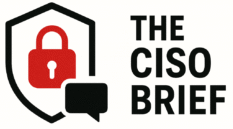Essential Insights
-
UK Sanctions Imposed: The UK government has sanctioned three Russian military intelligence units (GRU Units 29155, 26165, and 74455), 18 members, and individuals involved in cyber operations and assassination attempts linked to various attacks on Ukraine and other targets.
-
Cyber Operations and Attacks: Unit 29155 has been involved in destructive cyberattacks, including the WhisperGate wiper malware during Russia’s 2022 invasion of Ukraine and notable incidents like the 2014 Vrbétice explosion and the Skripal poisoning in 2018, while Unit 26165 has targeted multiple high-profile entities, including the US Democratic Party and European government systems.
-
New Malware Identified: The UK has attributed a new malware family, Authentic Antics, to APT28, designed for persistent access to Microsoft cloud accounts, highlighting its ability to harvest user credentials and steal sensitive data.
- Influence Operations Targeting Ukraine: Sanctions also extend to individuals involved in the "African Initiative," a Russian news agency that disseminates propaganda undermining Ukraine’s military efforts, alongside other figures believed to be part of the GRU leadership.
The Core Issue
In a decisive move against Russian cybersecurity threats, the UK government recently imposed sanctions on three elite military intelligence units within the Russian General Staff Main Intelligence Directorate (GRU), specifically Units 29155, 26165, and 74455. These units have been implicated in a nefarious tapestry of cyberattacks, with a notable focus on Ukraine and its Western allies, including NATO member states and the European Union. Key figures identified in these instigations include alleged cyber operatives responsible for high-stakes operations such as the WhisperGate malware that devastated Ukrainian systems in early 2022, and the infamous poisoning of former spy Sergei Skripal. The UK’s National Cyber Security Centre (NCSC) has also attributed a new variant of malware, Authentic Antics, to Unit 26165, which is designed to stealthily harvest user credentials from Microsoft cloud accounts.
The sanctions are a direct response to the escalating hostile activities orchestrated by these units, which have not only targeted military and governmental mechanisms but also engaged in disinformation campaigns via platforms like the African Initiative news agency. Key individuals highlighted include Sergey Morgachev and Ivan Yermakov, linked to the development of sophisticated malware, while additional actions against the unit emphasize the growing concern over Russia’s cyber ambitions. As these military intelligence units continue to threaten global cybersecurity, the combined efforts of the UK and its allies form a robust stance against cybercrime and state-sponsored malicious activities.
Critical Concerns
The recent UK sanctions targeting Russian military intelligence units deeply resonate across the global business landscape, posing significant risks to various industries and organizations. With these units—specifically the GRU’s Units 29155, 26165, and 74455—actively involved in sophisticated cyberattacks and espionage, any collateral fallout could trigger widespread operational disruptions and financial losses. Businesses may find themselves vulnerable to retaliatory strikes or collateral damage from these adversarial campaigns, jeopardizing their data integrity and customer trust. Users could face heightened exposure to ransomware and credential theft as the newly identified Authentic Antics malware infiltrates systems masquerading as legitimate activity. Furthermore, organizations supporting or associated with nations opposing Russia may become prime targets, leading to an avalanche of cyber threats that could undermine critical infrastructure, supply chain reliability, and overall economic stability. In essence, these developments not only underscore the intricate dynamics of geopolitical tensions but also illuminate the pressing need for robust cybersecurity measures across all sectors.
Fix & Mitigation
Timely remediation in response to sanctions is critical for safeguarding national security and maintaining the integrity of international relations, particularly when dealing with nefarious actors such as Russian hackers implicated in assassination attempts.
Mitigation Steps
- Threat Intelligence Sharing
- Enhanced Network Monitoring
- Incident Response Planning
- Vulnerability Management
- User Awareness Training
- Access Control Review
- Encryption Standards
- Third-Party Assessments
NIST CSF Guidance
NIST CSF emphasizes a proactive, risk-based approach to managing cybersecurity threats. Specific guidance on this matter can be found in NIST SP 800-53, which details security and privacy controls to protect organizational operations and assets.
Advance Your Cyber Knowledge
Stay informed on the latest Threat Intelligence and Cyberattacks.
Access world-class cyber research and guidance from IEEE.
Disclaimer: The information provided may not always be accurate or up to date. Please do your own research, as the cybersecurity landscape evolves rapidly. Intended for secondary references purposes only.
Cyberattacks-V1

